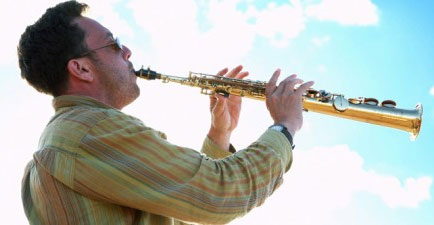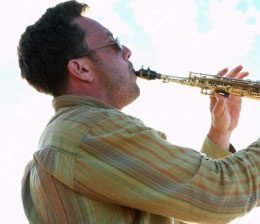
Philosopher and musician David Rothenberg is the author of Why Birds Sing, also published in Italy, Spain, Taiwan, China, Korea, and Germany. It was turned into a feature length BBC TV documentary. Rothenberg has also written Sudden Music, Blue Cliff Record, Hand’s End, and Always the Mountains. His articles have appeared in Parabola, Orion, The Nation, Wired, Dwell, Kyoto Journal, The Guardian, The Globe and Mail and Sierra. Rothenberg is also a composer and jazz clarinetist, and he has seven CDs out under his own name, including On the Cliffs of the Heart, named one of the top ten CDs by Jazziz Magazine in 1995. His latest book is Thousand Mile Song, about making music with whales. His first CD on ECM Records, with pianist Marilyn Crispell, One Dark Night I Left My Silent House was released in 2010. In 2011 he has released CDs with Lewis Porter and with Scanner. Rothenberg is professor of philosophy and music at the New Jersey Institute of Technology.
Idioma original: Inglés
Fecha de Publicación: 01/08/2011
What is music?
Music is supposed to be ‘organized sound.’ But that’s a boring definition. I always look for a definition of music that will also apply to bird song, or whale song, and then I think of something like, ‘a series of sounds arranged in time where the meaning is contained in the performance, with a beginning, middle and end, a meaning that is very difficult to translate into anything else.’ So it’s not like language, but is somehow universal. The meaning in such a performance can be understood even by those who don’t know exactly what’s going on. So it’s not a game, you don’t need to know the rules to be touched by what you hear.
What we need it for?
To express what can be expressed no other way. To directly touch the emotions with an art that cuts through all attempts to explain or to justify it.
Has any sense to push the approach of music (or in general, the arts) with «hard» sciences? I mean, not to understand music from a scientific point of view but more in the sense of supporting musical activity/production based on scientific paradigms, starting creation from applying those paradigms or using them as models.
Are you talking about using mathematics to make music? Methods such as tone rows and serialism? Sure, they have their place. But I am still interested most in music that is composed, performed, and understood on the basis of what it sounds like, not what it is supposed to mean. We all know today it is easy to turn any kind of data into music, but if the results are any good, they will still be based on aesthetic choices rather than rules taken far out of context.
Is there such a thing like an aesthetics of science?… and an ethics of art?
That’s the subject of my next book, Survival of the Beautiful, coming out this November. Science is full of examples where it is as revealed, and sometimes explained beauty. Artists are allowed to say and express whatever they want, but some art is more ethical than other. Art that is cynical, overly ironic, and just says “what the f**k” to everything is less important than the art that takes some kind of stand, whether moral or aesthetic. I think it’s immoral for artists to turn away from beauty, and to be afraid of judgment. If you can’t tell whether your work is good or bad, there is a problem with it.
What do you think about the relationship between art and nature?
All of my work deals with this question, so it’s hard to answer quickly. Aristotle says art completes what nature started. John Cage and Brian Eno sought to make art that imitates nature “in its manner of operation,” also an idea they cribbed from Aristotle. I look for art and music that reveals the beauty of nature that cannot be seen without the insight and attention of the artist. I want human music to find a way to fit in with nature, so it might become as beautiful and necessary as the songs of birds, whales, and insects, which have been on this Earth for millions of years before there were any people.
Is there an art between animals?
Between animals, like, from one species to another? Certainly bowerbirds make artworks, and many animals sing songs and make music. If you disagree then you haven’t paid enough attention to these animals. They may not have as much choice as to kind of music they like or create, but on the opposite side, they are much more certain about their aesthetics. Each species has a unique aesthetic sense, and that determines the kind of songs they sing or the art they make and appreciate. Other species know what they like—humans are the ones who, by our very nature, need to spend too much time wondering what is good. It is our very essence to be unsure, and to constantly try new things. That’s why it’s great to be one of us!
Without considering human beings in this «equation»: nature sings?
Listen carefully enough and you will hear all of nature as a vast musical composition, something that transcends all genres to contain all musical possibilities.
Do you «talk» to animals? Do they «talk» to you?
I play with birds, whales, and bugs, making music with them, not speaking to them or trying to translate what they say. This is a lot more possible, much easier, and much more fun.
Why you make music?
I often wonder why! Probably because it is the one thing I am able to do that brings others the most joy. I know people get something important from it, which I am not sure about all the books I write. I don’t know how many people actually read them, but I know when I make music, people smile.
Is there a role for artists (composers, musicians, etc.) in society, out of the so-called «entertainment» (or just for self-indulgence)?
Sure! Artists reveal secrets of the world that no one else can. Art lasts longer than anything else humans do, and can move and chance people for centuries. To get beyond entertainment just spend more time listening, looking, thinking. Your life will be much richer because of it.
How could we move towards a balance between human activities and nature through the arts?
To celebrate art that helps to show a way humanity can fit into nature, and not rule over it and destroy it.
As an artist and philosopher: what would you like to do in the next 10 years?
As a musician I would like to be able to reach a larger audience so that more people could be touched by my work. Not a huge audience, but a bigger audience, as much as would benefit by hearing what I do. But so much music is being made today, it’s so hard to make a signal in all the noise. I wish I know how to reach more people with the work. As a writer and thinker I would like to work further to explain how art and science could be more intrinsically linked, and how artists might take a stronger stand to explain what makes some work better than other. I feel a sense of critique and judgment is really lacking from the art world today, so we end up with too much bad art and too much elitist art that has little to do with most people in the world. This has got to change. Art should make everyone think and experience deeper matters in the world, and it is the responsibility of the artist and the critic to make people care more about the power of art to change so much about how we know and feel the world.
Links de referencia:
http://www.whybirdssing.com
http://www.thousandmilesong.com
http://www.survivalofthebeautiful.com/

